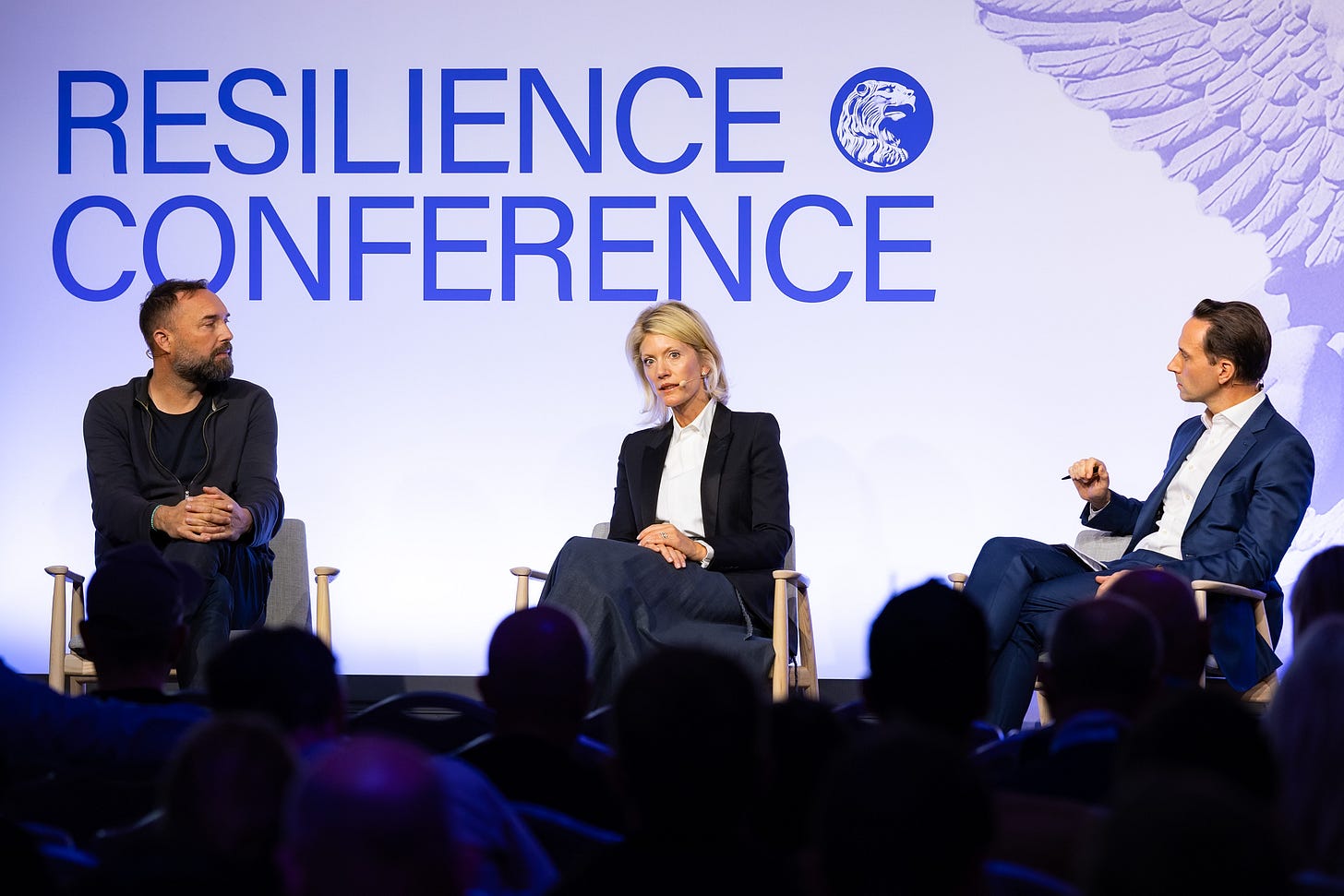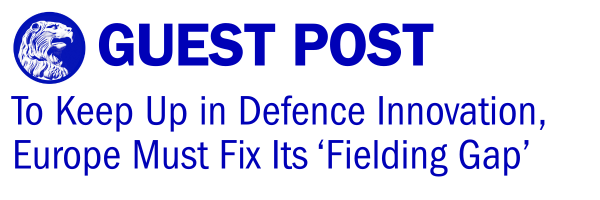What Netflix's 'A House of Dynamite' gets right, according to defence experts
Issue 46: Plus Resilience Conference 2025 coverage, air traffic control for drones, and Bessemer Venture Partners 'European Resilience Roadmap'

Good afternoon from the team at Resilience Media
I watched A House of Dynamite last weekend and I was brought to tears by Rebecca Ferguson’s portrayal of a mom of a small child who works in the White House Situation Room. Cinematically compelling with an emotive narrative and expertly directed by Kathryn Bigelow, does the rest of the film hold up to reality? Resilience Media contributor Tom Pashby spoke to defence tech experts across industry, academia, and policy to ask what Hollywood got right and wrong about its portrayal of a nuclear attack. Read more below in the A House of Dynamite Section.
Agris Kipurs, CEO of Origin Robotics returns to Resilience Media with another guest post, this time on how Europe can fix its ‘Fielding Gap.’ Read his latest article in the Guest Post Section below.
We’ve been looking back at the Resilience Conference 2025 stage and are steadily bringing you write-ups of all panels that were on the record. Watch them here and you can read the following:
Expeditions Announces Lead Up to 150 Million Euro Fund To Support Defence In Europe
Helsing CEO Torsten Reil Urges Europe to Build for Defence Tech Sovereignty
The Kinetic Revolution: Stark and Tiberius Aerospace Redefine Defence Tech at Resilience Conference
And elsewhere on Resilience Media:
Bessemer Venture Partners unveiled its European Resilience Roadmap and Alex Ferrara sat down with Managing Editor Ingrid Lunden to talk all about it
November is shaping up to be a busy month which will see the team in Brussels, Paris, and Helsinki, not to mention the London for the UK-UA Defence Tech Forum. If you’re going to be in town, let us know.
Until next week.
-Leslie Hitchcock, co-founder and Publisher, Resilience Media
In the wake of the 80th anniversary of the bombings of Hiroshima and Nagasaki, a new Hollywood film, A House of Dynamite, captures the panic and paranoia that can ensnare even those trained to respond to a nuclear emergency.
The trailer for the movie, directed by the award-winning Kathryn Bigelow and briefly released in cinemas before its debut on Netflix this month, shows leadership from the US political and defence establishment racing to figure out how to respond to a single, unattributed nuclear missile heading towards the US from the Pacific Ocean.
Тhe film, presented in three 18-minute segments that replay the same moments from different perspectives across the US government, paints a highly critical image of the ballistic missile defence capabilities of the US.
Each of these segments includes characters across a variety of groups: a team of young soldiers operating a Ground-Based Midcourse Defense (GMD) at Fort Greely in Alaska which can fire Ground-Based Interceptors (GBIs) at ballistic missiles; the White House Situation Room; Strategic Command (STRATCOM); the emergency response room at FEMA; and others.
Europe is facing mounting security threats and a pressing need to modernise its military capabilities, and new defence companies are emerging as vital players in that race. They are nimble, cost-efficient, and often years ahead of legacy contractors when it comes to developing practical technologies.
Yet across the continent, such startups face a persistent and structural problem. There is a “valley of death” between success in their home markets and adoption abroad. Analysts estimate there are around 420 aerospace and defence startups in Europe, with nearly a third founded since 2022. That is a clear sign of growing momentum in the sector. But only a small fraction of these companies have managed to secure pilots or export their systems into operational use beyond their home bases.
At a roundtable with new defence companies hosted by the European Commission back in June, I made a proposal to support defence-tech SMEs, which I titled Fielding of New Defence Capabilities in New Markets. Designed to address the growing disconnect between national adoption and broader European deployment, it offers a potential pathway through the current impasse—one we’ll examine in more detail below. Continue here.
Follow Resilience Media on LinkedIn and Bluesky to catch our latest news coverage in your feed. And don’t be shy; bring your voice to the discussion.
UK-UA Defence Tech Forum
Resilience Media is once more a Media Partner of the 4th UK-UA Defence Tech Forum, which is taking place on 18th November at RUSI in London with the official support of the Embassy of Ukraine in the UK.
The series of conferences was convened to enhance the collaboration between Ukrainian, British and international defence tech firms, together with the VC community, to scale up production and speed up R&D and new innovations. To date the series has attracted over 750 participants and registration has had to be closed well in advance of each event. Highlights include a pitch session featuring 15 hand-picked leading Ukrainian defence tech companies designed to create partnerships with international counterparts and to meet with leading VCs.
Resilience Media readers receive a 25% discount on the registration fee. When registering on the Forum webpage simply enter the code Resilience25. For any questions contact the organisers at: stephen.butler@strategy-council.com .
A Grand Strategy of Reciprocity
A Tiny NATO Nation Is Cashing In on the Threat Next Door
Boeing taps former defense procurement minister for president of its UK arm
Lockheed considering modifying existing missiles into lower cost designs
Western drones are underwhelming on the Ukrainian battlefield






